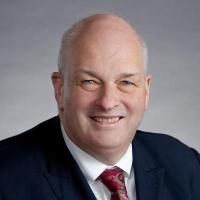High-impact chronic pain transition in surgical recipients with cervical spondylotic myelopathy.
Date
2022-01
Journal Title
Journal ISSN
Volume Title
Repository Usage Stats
views
downloads
Citation Stats
Attention Stats
Abstract
Objective
High-impact chronic pain (HICP) is a recently proposed metric that indicates the presence of a severe and troubling pain-related condition. Surgery for cervical spondylotic myelopathy (CSM) is designed to halt disease transition independent of chronic pain status. To date, the prevalence of HICP in individuals with CSM and their HICP transition from presurgery is unexplored. The authors sought to define HICP prevalence, transition, and outcomes in patients with CSM who underwent surgery and identify predictors of these HICP transition groups.Methods
CSM surgical recipients were categorized as HICP at presurgery and 3 months if they exhibited pain that lasted 6-12 months or longer with at least one major activity restriction. HICP transition groups were categorized and evaluated for outcomes. Multivariate multinomial modeling was used to predict HICP transition categorization.Results
A majority (56.1%) of individuals exhibited HICP preoperatively; this value declined to 15.9% at 3 months (71.6% reduction). The presence of HICP was also reflective of other self-reported outcomes at 3 and 12 months, as most demonstrated notable improvement. Higher severity in all categories of self-reported outcomes was related to a continued HICP condition at 3 months. Both social and biological factors predicted HICP translation, with social factors being predominant in transitioning to HICP (from none preoperatively).Conclusions
Many individuals who received CSM surgery changed HICP status at 3 months. In a surgical population where decisions are based on disease progression, most of the changed status went from HICP preoperatively to none at 3 months. Both social and biological risk factors predicted HICP transition assignment.Type
Department
Description
Provenance
Subjects
Citation
Permalink
Published Version (Please cite this version)
Publication Info
Cook, Chad E, Steven Z George, Anthony L Asher, Erica F Bisson, Avery L Buchholz, Mohamad Bydon, Andrew K Chan, Regis W Haid, et al. (2022). High-impact chronic pain transition in surgical recipients with cervical spondylotic myelopathy. Journal of neurosurgery. Spine, 37(1). pp. 1–10. 10.3171/2021.11.spine211260 Retrieved from https://hdl.handle.net/10161/28048.
This is constructed from limited available data and may be imprecise. To cite this article, please review & use the official citation provided by the journal.
Collections
Scholars@Duke

Chad E. Cook
Dr. Cook is a clinical researcher, physical therapist, and profession advocate with a long-term history of clinical care excellence and service. His passions include refining and improving the patient examination process and validating tools used in day-to-day physical therapist practice. Dr. Cook has authored or co-authored 3 textbooks, has published over 315 peer reviewed manuscripts and lectures internationally on orthopedic examination and treatment.

Steven Zachary George
Dr. George’s primary interest is research involving biopsychosocial models for the prevention and treatment of chronic musculoskeletal pain disorders. His long term goals are to 1) improve accuracy for predicting who is going to develop chronic pain; and 2) identify non-pharmacological treatment options that limit the development of chronic pain conditions. Dr. George is an active member of the American Physical Therapy Association, United States Association of the Study of Pain, and International Association for the Study of Pain.
Dr. George’s research projects have been supported by the National Institutes of Health, Department of Defense, and Orthopaedic Academy of the American Physical Therapy Association. Dr. George and his collaborators have authored over 330 peer-reviewed publications in leading medical, orthopaedic surgery, physical therapy, rehabilitation, and pain research journals. He currently serves as Editor-in-Chief for the Physical Therapy & Rehabilitation Journal. Dr. George has also been involved with clinical practice guideline development for the Academy of Orthopaedic Physical Therapy and the American Psychological Association.
Dr. George has been recognized with prestigious research awards from the American Physical Therapy Association, American Pain Society, and International Association for the Study of Pain. For example from the American Physical Therapy Association: he was named the 21st John H.P. Maley Lecturer, recognized as a Catherine Worthingham Fellow in 2017, and selected for the Marian Williams Award for Research in Physical Therapy in 2022.

Christopher Ignatius Shaffrey
I have more than 25 years of experience treating patients of all ages with spinal disorders. I have had an interest in the management of spinal disorders since starting my medical education. I performed residencies in both orthopaedic surgery and neurosurgery to gain a comprehensive understanding of the entire range of spinal disorders. My goal has been to find innovative ways to manage the range of spinal conditions, straightforward to complex. I have a focus on managing patients with complex spinal disorders. My patient evaluation and management philosophy is to provide engaged, compassionate care that focuses on providing the simplest and least aggressive treatment option for a particular condition. In many cases, non-operative treatment options exist to improve a patient’s symptoms. I have been actively engaged in clinical research to find the best ways to manage spinal disorders in order to achieve better results with fewer complications.

Khoi Duc Than
I chose to pursue neurosurgery as a career because of my fascination with the human nervous system. In medical school, I developed a keen interest in the diseases that afflict the brain and spine and gravitated towards the only field where I could help treat these diseases with my own hands. I focus on disorders of the spine where my first goal is to help patients avoid surgery if at all possible. If surgery is needed, I treat patients using the most advanced minimally invasive techniques available in order to minimize pain, blood loss, and hospital stay, while maximizing recovery, neurologic function, and quality of life. In my free time, I enjoy spending time with my family and friends. I am an avid sports fan and love to eat. I try to stay physically fit by going to the gym and playing ice hockey.

Oren N Gottfried
I specialize in the surgical management of all complex cervical, thoracic, lumbar, or sacral spinal diseases by using minimally invasive as well as standard approaches for arthritis or degenerative disease, deformity, tumors, and trauma. I have a special interest in the treatment of thoracolumbar deformities, occipital-cervical problems, and in helping patients with complex spinal issues from previously unsuccessful surgery or recurrent disease.I listen to my patients to understand their symptoms and experiences so I can provide them with the information and education they need to manage their disease. I make sure my patients understand their treatment options, and what will work best for their individual condition. I treat all my patients with care and concern – just as I would treat my family. I am available to address my patients' concerns before and after surgery. I aim to improve surgical outcomes for my patients and care of all spine patients with active research evaluating clinical and radiological results after spine surgery with multiple prospective databases. I am particularly interested in prevention of spinal deformity, infections, complications, and recurrent spinal disease. Also, I study whether patient specific variables including pelvic/sacral anatomy and sagittal spinal balance predict complications from spine surgery.
Unless otherwise indicated, scholarly articles published by Duke faculty members are made available here with a CC-BY-NC (Creative Commons Attribution Non-Commercial) license, as enabled by the Duke Open Access Policy. If you wish to use the materials in ways not already permitted under CC-BY-NC, please consult the copyright owner. Other materials are made available here through the author’s grant of a non-exclusive license to make their work openly accessible.
